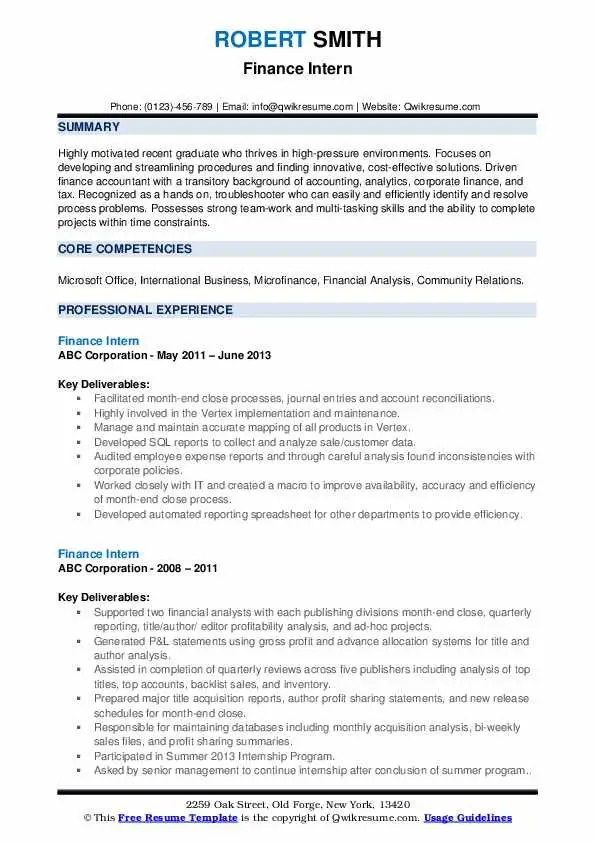Struggling to manage your finances during your internship? Don’t worry, we’ve got you covered! In this blog post, we’ll walk you through some practical tips on how to effectively handle your money while interning. From creating a budget to prioritizing expenses, we’ll provide you with actionable advice that will help you navigate this crucial aspect of your internship experience. So if you’re ready to take control of your finances and make the most of your internship, keep reading to discover our valuable insights on how to manage finances during an internship.
How to Manage Finances During an Internship
Internships provide valuable opportunities for students and recent graduates to gain practical experience in their chosen fields. However, internships often come with financial challenges, particularly when it comes to managing expenses on a limited budget. In this article, we will discuss effective strategies for managing finances during an internship, helping you make the most of your experience without breaking the bank.
1. Create a Budget
One of the first steps to effectively manage your finances during an internship is to create a budget. This will help you track your income and expenses, allowing you to make informed financial decisions. Here’s how you can create a budget:
- Identify your income sources: Start by calculating your monthly income, including your internship stipend, any scholarships or grants, and any other sources of income.
- List your expenses: Make a comprehensive list of all your monthly expenses, including rent, utilities, transportation, groceries, and any other necessary expenses.
- Differentiate between needs and wants: Differentiate between essential expenses and discretionary spending. Prioritize your needs and allocate funds accordingly.
- Set saving goals: Determine how much you want to save from your income. Set achievable goals to build an emergency fund or save for future expenses.
- Track your spending: Regularly monitor your expenses and compare them against your budget. Use budgeting apps or spreadsheets to simplify the process.
Creating and sticking to a budget will provide you with a clear overview of your financial situation and help you make wise financial decisions throughout your internship.
2. Minimize Living Expenses
When it comes to managing finances during an internship, reducing living expenses can make a significant difference. Consider the following tips to minimize your living costs:
- Shared Accommodation: If possible, opt for shared accommodation to split the cost of rent and utilities with roommates. This can help significantly reduce your monthly housing expenses.
- Meal Prepping: Plan and prepare your meals in advance to avoid excessive spending on takeout or dining out. Cooking at home is not only cost-effective but also gives you more control over your nutrition.
- Transportation: Explore affordable transportation options such as public transit or carpooling to minimize your commuting expenses. Consider walking or biking if feasible.
- Utilities: Be mindful of your utility consumption. Turn off lights when leaving a room, unplug electronics when not in use, and adjust your thermostat to conserve energy.
- Entertainment: Look for free or low-cost entertainment options, such as community events or student discounts. Take advantage of libraries, parks, and other public spaces for leisure activities.
By consciously minimizing your living expenses, you can stretch your budget further and have more financial flexibility during your internship.
3. Seek Financial Assistance
While internships often come with modest stipends, it’s essential to explore additional financial assistance options that may be available to you. Consider the following avenues for financial support:
- Scholarships and Grants: Research and apply for scholarships and grants relevant to your field. Many organizations offer financial aid to support students during internships.
- Internship Support Programs: Some companies or universities have support programs specifically designed to assist interns financially. These programs may offer additional stipends or resources to help cover internship-related expenses.
- Part-Time Work: If your schedule allows, consider taking on a part-time job to supplement your income. Look for flexible work opportunities that won’t interfere with your internship responsibilities.
- Student Discounts: Take advantage of student discounts whenever possible. Many businesses offer reduced prices for students, ranging from transportation to entertainment venues.
Exploring these financial assistance options can alleviate financial stress and provide you with a more comfortable internship experience.
4. Build an Emergency Fund
Having an emergency fund is crucial to handle unexpected expenses that may arise during your internship. Consider these steps to build an emergency fund:
- Set a savings goal: Determine how much you want to save for emergencies. Aim for at least three to six months’ worth of living expenses.
- Automate your savings: Set up automatic transfers from your paycheck to a separate savings account. This will ensure consistent contributions without relying on your own discipline.
- Reduce unnecessary expenses: Cut down on non-essential spending and redirect those funds toward your emergency fund.
- Keep your emergency fund separate: Open a separate savings account specifically for your emergency fund. This will prevent you from dipping into it for non-urgent expenses.
Having an emergency fund provides peace of mind, knowing that you have a financial safety net during unexpected situations.
5. Take Advantage of Professional Development Opportunities
While managing finances is important during an internship, it’s equally crucial to leverage professional development opportunities that can enhance your future earning potential. Consider these strategies:
- Networking: Build relationships with professionals in your industry. Attend networking events, join industry-specific online communities, and connect with mentors who can offer guidance and potential job opportunities.
- Acquire new skills: Use your internship as an opportunity to learn and acquire new skills. Attend workshops, webinars, or online courses relevant to your field. The more valuable skills you possess, the better your prospects for higher-paying job opportunities in the future.
- Seek feedback and mentorship: Actively seek feedback from your supervisors and mentors. Their guidance can help you improve your skills, making you more marketable in your chosen field.
- Participate in professional organizations: Join professional organizations related to your field. These organizations often offer resources, scholarships, and networking opportunities that can benefit your career trajectory.
By investing in your professional development, you can increase your earning potential and financial stability in the long run.
In conclusion, managing finances during an internship requires careful planning, budgeting, and resourcefulness. By creating a budget, minimizing living expenses, seeking financial assistance, building an emergency fund, and leveraging professional development opportunities, you can navigate your internship period with a solid financial foundation. Remember to maintain a proactive approach to your finances, and continually seek ways to improve your financial well-being.
Managing your finances during your internship
Frequently Asked Questions
Frequently Asked Questions (FAQs)
How can I manage my finances during an internship?
Managing your finances during an internship can be challenging, but with some careful planning and budgeting, you can ensure financial stability throughout your internship period. Here are some tips to help you manage your finances effectively:
1. What is the first step in managing finances during an internship?
The first step is to create a budget. Start by listing all your income sources, such as your intern stipend, scholarships, or part-time jobs. Then, calculate your monthly expenses, including rent, utilities, transportation, groceries, and any other necessary expenses. This will give you a clear idea of how much money you have and how much you can allocate to different categories.
2. How can I save money during my internship?
To save money during your internship, consider the following strategies:
- Limit eating out and pack your lunches.
- Take advantage of student discounts and coupons.
- Use public transportation or carpool to save on commuting costs.
- Shop smart by comparing prices and opting for budget-friendly options.
- Reduce unnecessary expenses like subscription services you don’t use.
3. Is it important to prioritize my expenses during an internship?
Yes, it is crucial to prioritize your expenses during an internship. Identify your essential needs, such as rent, utilities, and groceries, and allocate funds to cover these expenses first. Non-essential expenses, like entertainment or shopping, should be budgeted for after taking care of your crucial needs.
4. How can I track my expenses during an internship?
Tracking your expenses is key to managing your finances effectively. You can use various methods, such as:
- Maintaining a spreadsheet or using budgeting apps.
- Keeping receipts and categorizing your expenses.
- Checking your bank statements regularly to monitor your spending.
5. What should I do if I face unexpected expenses during my internship?
If you encounter unexpected expenses during your internship, it’s important to be prepared. Build an emergency fund by setting aside a portion of your income each month. This fund will provide a safety net for unforeseen expenses such as medical emergencies or repairs.
6. How can I make some extra money during my internship?
If you want to earn some extra money during your internship, consider the following options:
- Freelancing or taking up part-time gigs that align with your skills.
- Tutoring or providing academic assistance to other students.
- Participating in paid research studies or surveys.
- Selling unwanted items online or at local marketplaces.
7. Should I apply for a credit card during my internship?
Obtaining a credit card during your internship can be beneficial for building credit history, but it should be used responsibly. Before considering a credit card, educate yourself about interest rates, fees, and credit limits. Make sure you can handle the associated responsibilities and pay off the balance on time to avoid accumulating debt.
8. Is it advisable to take out a student loan during an internship?
It is generally not advisable to take out a student loan specifically for an internship. Student loans should primarily be used for tuition and education-related expenses. If you are facing financial difficulties during your internship, try exploring other options such as part-time jobs, scholarships, or seeking financial assistance from your college or university.
Final Thoughts
Managing finances during an internship can be challenging, but with careful planning and budgeting, it is possible to navigate this period successfully. Start by creating a realistic budget that includes all your expenses and income. Cut unnecessary expenses and look for ways to save money, such as cooking meals at home and using public transportation. Track your spending and prioritize your financial goals. Consider finding a part-time job or exploring alternative sources of income. Finally, take advantage of student discounts and financial resources available to you. With these strategies in place, you can effectively manage your finances during your internship.



